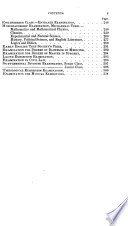 | Dublin city, univ - 1868 - 360 pages
...factors:— n. (x + y) 3 + i. Find the values of x and y from the equations 3. The three digits of a number are in arithmetical progression ; if the number be divided by the sum of its digits, the quotient will be 26 ; but if 198 be added to the number, the digits will occur in reverse... | |
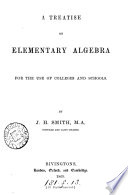 | James Hamblin Smith - 1869 - 412 pages
...the sum of the terms a У is 22. Required the number of terms. 14. The 3 digits of a certain number are in arithmetical progression ; if the number be divided by the sum of the digits in the units and tens place, the quotient is 107. If 396 be subtracted from the number, its digits... | |
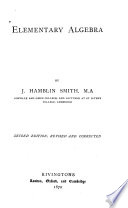 | James Hamblin Smith - Algebra - 1870 - 452 pages
...of the terms o 9 is 22. Required the number of terms. -— • 14. The 3 digits of a certain number are in arithmetical progression ; if the number be divided by the sum of the digits in the units' and tens' place, the quotient is 107. If 396 be subtracted from the number, its digits... | |
 | James Hamblin Smith - Algebra - 1870 - 478 pages
...the quotient is 4. What is the number ? 28. The sum of the two digits composing a number is 9, and if the number be divided by the sum of the digits the quotient is 5. What is the number ? 29. If I divide a certain number by the sum of the two digits of which it... | |
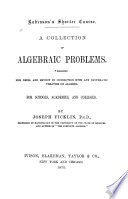 | Joseph Ficklin - Algebra - 1874 - 204 pages
...the third, and so on. When will they meet ? Ans. At the end of 8 days. 14. A certain number consists of three digits, which are in arithmetical progression. If the number be divided by the sum of its digits the quotient will be 26 ; and if 198 be added to the number the order of its digits will... | |
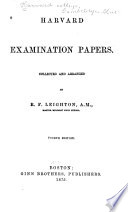 | 1875 - 256 pages
...ALGEBEA. — Course II. and Advanced Standing. 1. The sum of the two digits which form a number is 9, and if the number be divided by the sum of the digits the quotient is 5. Find the number. ' 2. Solve the equation ;—r = 4. 1 2 x — 2 x-{-2 3. A merchant bought a... | |
 | Edward Olney - 1878 - 258 pages
...Find the G. P. in which the sum of n terms is t (3" - 1) 3. What is the GP whose nth term is s". 4. There is a number consisting of three digits, which are in arithmetical progression; the quotient arising from dividing the number by the sum of its digits is 26; but if 198 be subtracted... | |
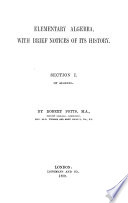 | Robert Potts - Algebra - 1879 - 672 pages
...vin. 1. IIow many strokes does a clock strike in twelve hours? 2. The three digits of a certain number are in arithmetical progression ; if the number be divided by the sum of the digits in the units and tens places, the quotient is 107; but if 396 be subtracted from the number its digits... | |
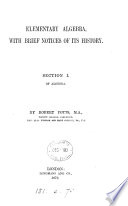 | Robert Potts - 1879 - 668 pages
...VIIL 1. How many strokes does a clock strike in twelve hours? 2. The three digits of a certain number are in arithmetical progression ; if the number be divided by the sum of the digits in the units and tens places, the quotient is 107; but if 396 be subtracted from the number its digits... | |
 | Edward Olney - Algebra - 1881 - 254 pages
...) n = »'. 2. Find the GP in which the sum of n terms is 3. What is the GP whose wth term is s\ 4. There is a number consisting of three digits, which are in arithmetical progression ; the quotient arising from dividing the number by the sum of its digits is 26; but if 198 be added... | |
| |